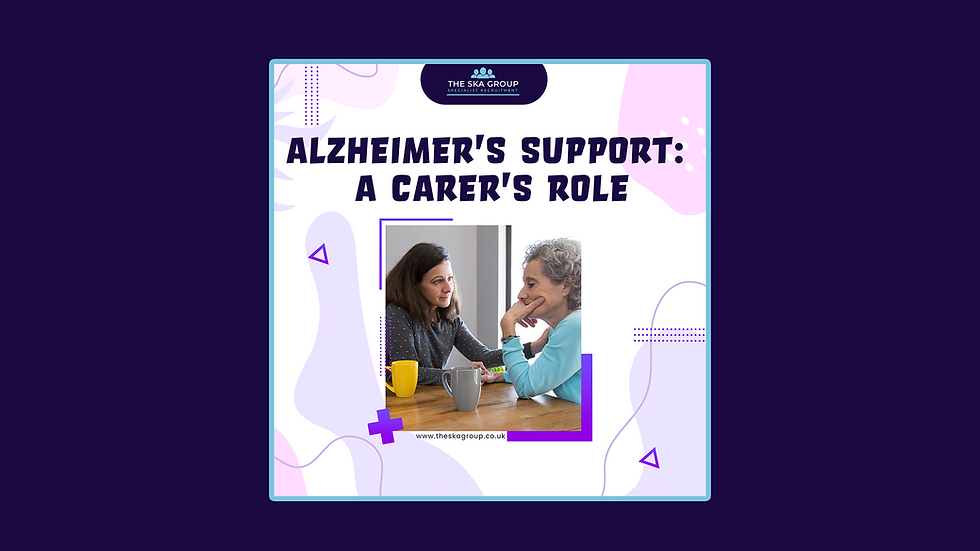Fibromyalgia : What is it?
- Emily

- May 12, 2025
- 3 min read
Fibromyalgia is not a well known condition in the same sense as arthritis or even a slipped disc, but it is a condition that can be debilitating and often makes the sufferer tired, exhausted and in pain.
You can’t see fibromyalgia in the same way you may notice symptoms of eczema or a broken bone. This makes the condition difficult to understand from an outsider's perspective. Fibromyalgia is essentially a breakdown in communication between both the brain and the body, causing malfunctions in neurotransmitters.
Who can get it?
Anyone can get fibromyalgia, but it’s often more common in women than in men. It can affect individuals of any age, even children, but it often starts mid-way through someone’s life; the older you get, the higher your chances. It can occur in people from all ethnic backgrounds, too.
If you suffer with other rheumatic diseases, such as mood disorders or conditions that cause pain, you have an increased chance of developing fibromyalgia.
These triggering diseases can include:
Rheumatoid arthritis
Systemic lupus
Ankylosing spondylitis
Depression
Chronic back pain
IBS
Currently, scientists and researchers believe that fibromyalgia can run in families, and individuals born with certain genes are at a higher risk of developing the condition later in life. However, this isn’t always the case as it can develop in someone with no family history of fibromyalgia.
The symptoms
Although the condition isn’t life threatening, it can be chronically painful, with individuals experiencing pain and tenderness all over the body. In addition, fibromyalgia can also negatively impact sleep. Since deep sleep is when the body completes its repairs, fibromyalgia sufferers will be denied this recuperation and often awake from light sleep feeling very tired and stiff.
Symptoms of Fibromyalgia often start after a triggering event, such as an injury, surgery, infection or intense emotional stress and pressure. In rarer cases, symptoms have been known to appear without a trigger.
The main symptoms are:
Chronic widespread pain felt throughout the body or across multiple areas, often described as a burning or throbbing sensation
Fatigue
Sleep issues
Muscle and joint stiffness
Tender to touch
Numbness or tingling in arms and legs
Issues concentrating
Memory issues
Increased sensitivity to light
Digestive issues such as bloating or constipation
There’s currently no known cure for fibromyalgia, but medicines and treatments can help get the condition under control.
How can family and friends help?
It can be difficult for those living with fibromyalgia to explain to their loved ones how they are feeling and what it’s like to have the condition due to its invisible nature. It can also be really erratic in the sense that there will be good days, bad days and usually no two days the same.
For someone living with fibromyalgia, it can be incredibly beneficial when someone close to them takes the time to understand their condition, helping them feel less isolated and alone.
The key thing to bear in mind is that although fibromyalgia is not life threatening, it can be a lot for someone to deal with. Each symptom can attack at once, leaving the individual feeling pain from points all over the body. When all of these symptoms add up, they can have a significant impact on someone’s mental wellbeing and quality of life.
There are many small things you can do to help support someone suffering with fibromyalgia. These include
Educating yourself - Learning about the condition and the symptoms that your loved one has to put up with on a daily basis can help you understand them much better.
Help them find a daily routine - Try to help the individual find a routine that they can manage well regularly. This can allow them to stay active without causing flare ups and triggering symptoms.
Support them with daily activities - It is important for those with fibromyalgia to keep active and moving. Gentle movement and soft exercises are better than no movement at all.
Provide emotional support - Fibromyalgia can be emotionally difficult for sufferers to deal with; it can have a knock on effect to both physical and mental health. You as a loved one or a carer can play an important part here and be there to support the individual, listen to their concern and worries and provide support and advice to help them feel less alone.
Encourage them to seek advice - It’s possible to live a good life with fibromyalgia, and there are many treatments to help reduce the symptoms and pain felt. It can be useful to support the individual to seek help from a fibromyalgia specialist in order to get a personalised treatment plan and further advice if needed.




Comments